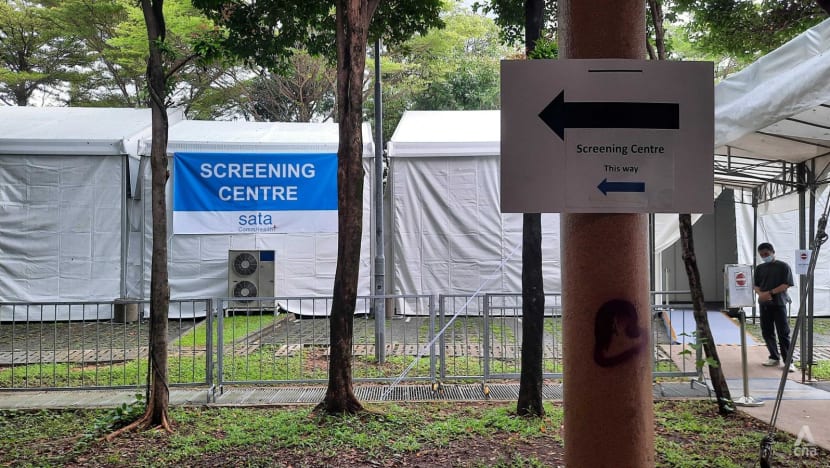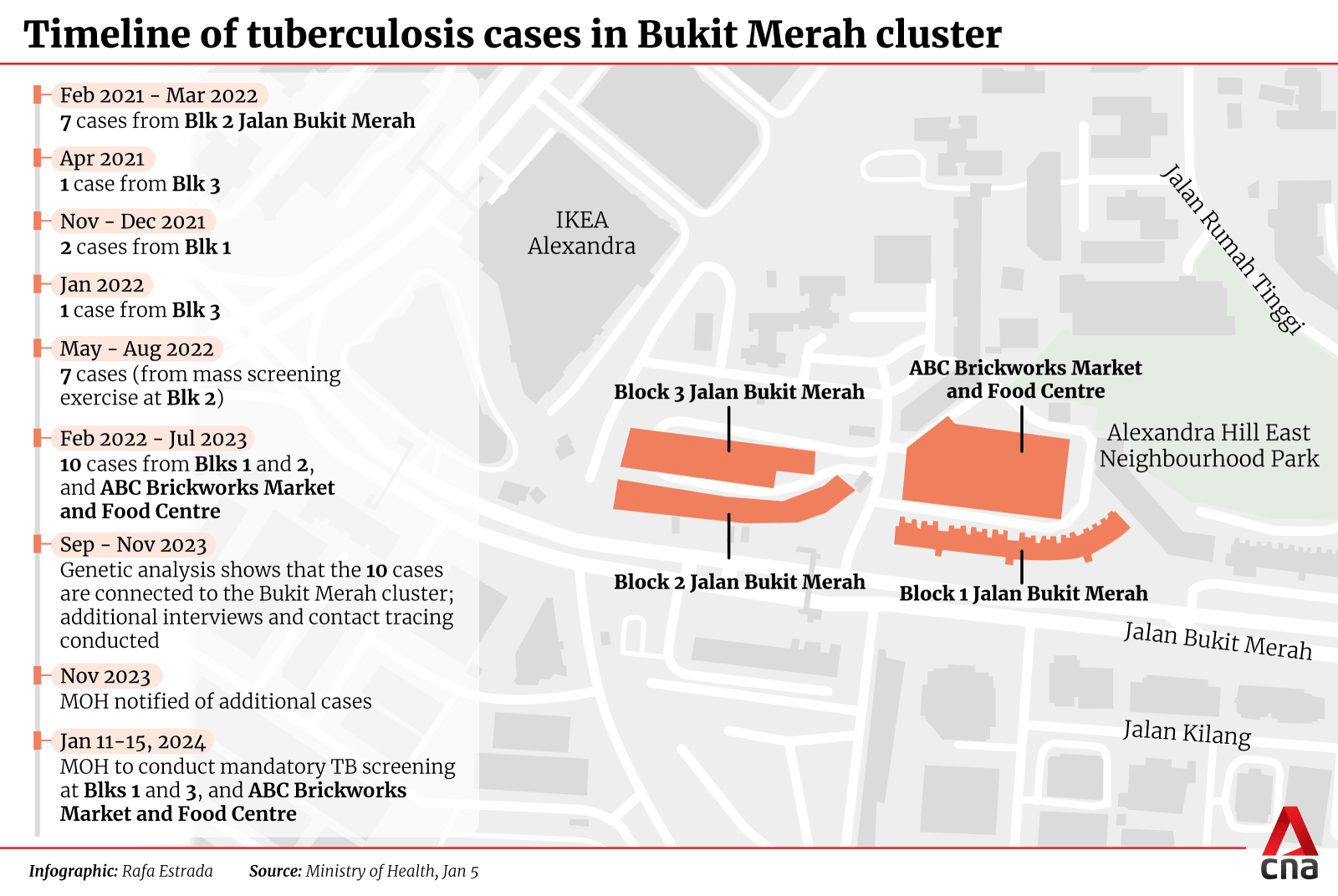Bukit Merah tuberculosis screening concludes, with 2 infectious cases detected
The Ministry of Health has assessed that there is no need to further expand tuberculosis screening in the area.

A tent set up for a tuberculosis screening exercise in Bukit Merah. (Photo: CNA/Koh Wan Ting)

This audio is generated by an AI tool.
SINGAPORE: Two infectious cases of tuberculosis were detected following the mandatory screening exercise at Jalan Bukit Merah.
The two active TB cases were among 2,548 people screened for the disease, the Ministry of Health (MOH) on Thursday (Feb 8) after the conclusion of the screening exercise.
Most of them - 2,158 people - tested negative, while 322 were diagnosed with latent tuberculosis infection.
Those with latent tuberculosis do not exhibit symptoms, are not infectious and do not pose a public health risk.
“Only those who have been diagnosed with active tuberculosis disease are infectious," said MOH.
"The two persons have commenced treatment and will be non-infectious upon completion of two weeks of treatment."
Further evaluation is required for 66 people and they have been advised to monitor for symptoms until their test results are out.
Tuberculosis usually affects the lungs but it can also affect other parts of the body, such as the brain, lymph nodes, kidneys, bones and joints.
Some of the common symptoms include a persistent cough that lasts three weeks or longer, low-grade fever, night sweats, fatigue, weight loss, chest pain and coughing up blood or sputum.
NO NEED TO EXPAND SCREENING: MOH
Based on the test results, the Health Ministry said there is no need to further expand screening.
The screening exercise started on Jan 11 for residents and workers of Blocks 1 and 3 Jalan Bukit Merah, ABC Brickworks Market and Food Centre and Thong Kheng Seniors Activity Centre @ Queenstown at Block 3 Jalan Bukit Merah.
This was a precautionary measure after a cluster of cases was identified.
Voluntary screening was also offered to frequent visitors to Blocks 1, 2 and 3 Jalan Bukit Merah and ABC Brickworks Market and Food Centre.

Blood tests were conducted from Jan 11 to Jan 15 to detect exposure to tuberculosis.
On-site chest X-ray screening was subsequently carried out from Jan 25 to Jan 27 to assess those who tested positive on the blood test.
Among those who underwent mandatory screening, 18.4 per cent tested positive on their blood test – indicating that they could have latent or active tuberculosis.
“This is higher than the historical positive rate of 12.7 per cent in the general population, but this discrepancy is within expectation due to the tuberculosis cases in the area,” said MOH.
In contrast, the rate of tuberculosis cases detected among those who participated voluntarily in the screening exercise was lower than in the general population.
“This indicates that these individuals, as casual visitors to the area and ABC Brickworks Market and Food Centre, did not have a higher risk of getting infected with tuberculosis, said the ministry.
"MOH has therefore assessed that there is no need to further expand screening."
What is tuberculosis?
Tuberculosis is an airborne disease caused by a bacterium. It usually affects the lungs but can also affect other parts of the body, such as the brain, lymph nodes, kidneys, bones and joints.
It can be fatal if not treated properly.
However, not everyone who is exposed to tuberculosis develops the illness, according to the HealthHub website.
Most times, the body can fight the germs, render them inactive and stop them from growing - but the germs remain alive in the body. This is latent tuberculosis infection.
Those with latent tuberculosis do not have symptoms and do not spread tuberculosis to other people.
In about 90 per cent of people who have latent tuberculosis, the bacteria remains inactive in their body throughout their lives.
To date, 97.3 per cent - or 1,701 out of 1,748 people - who had been identified for mandatory screening have come forward to be tested.
MOH said it will continue to engage the remaining individuals who have not completed their mandatory screening and arrange for them to be screened at the Tuberculosis Control Unit (TBCU).
Clinic appointments at TBCU have also been made for those who tested positive on their blood test or those with abnormal chest X-rays.
“Persons who have been diagnosed with active TB disease will be started on the appropriate treatment. Those diagnosed with latent tuberculosis infection will be offered preventive treatment to reduce their risk of development of active tuberculosis disease in the future,” said the ministry.















